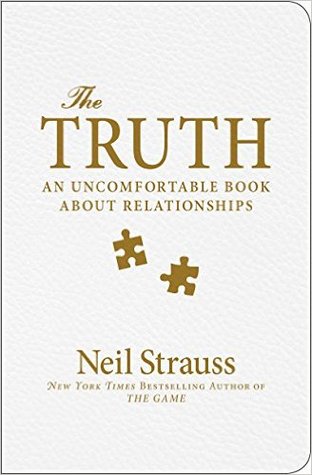More on this book
Community
Kindle Notes & Highlights
by
Neil Strauss
Read between
September 10, 2017 - January 4, 2020
Do you know what kind of people can’t control their behavior, even when they don’t enjoy that behavior anymore? Weak people? Addicts.
Guilt is about breaking the rules. Shame is about being broken.
the communication boundary. She holds up a poster board reading: When I saw/heard ____________. The story I told myself about that was ____________. And I feel ____________. So I would like to request that ____________. Charles tries it: “When I heard you say that ‘we’re not monogamous by design,’ the story I told myself about that was that it’s not true for me. I’m here to get better. And I feel angry. So I would like to request that in the future, you use I to refer to yourself instead of we.”
“Being relational is being in the moment—in the here and now—with someone else. Here’s a tool you can use: Your mind can only do two things at once. So if you can sit and feel your breath go in and out as you listen to someone else, you are in the moment, in action. And when you’re not in action, you’re not relational: You’re in reaction.”
“What I’m saying is that if you have true intimacy with your partner, you won’t need to seek sex outside the relationship.”
Joan writes the words S.A.F.E. SEX on the blackboard. The acronym was devised by Patrick Carnes, she explains, and it means that sex must never be “secretive, abusive, a way to alter feelings, or empty of a committed intimate relationship.”
Every time a child has a need and it’s not adequately met, that causes what we define as trauma.”
Any time you feel one down—or inferior—to someone or you feel one up—or superior—those are false beliefs generated by your shame core. Because, in reality, every person in the world has equal worth and value.”
“Being overcontrolled as a child sets you up to lie as an adult,” she concludes. “So the theory of sex addiction is that when you feel out of control or disempowered, you sneak around and act out sexually to reestablish control and regain your sense of self.”
“Was she there for you . . . or were you there for her?”
Intimacy is sharing your reality with someone else and knowing you’re safe, and them being able to share their reality with you and also be safe.
“I once interviewed a woman who was going through a sex change to become a man,” I tell him. “And she told me that as soon as the testosterone therapy kicked in, she suddenly understood men, because she wanted to fuck everything that moved.”
“A relationship should be about what you both want, not about what you both don’t want each other to have. There must be some way in which we can have freedom and our partners can have security—or we can all have both freedom and security.”


